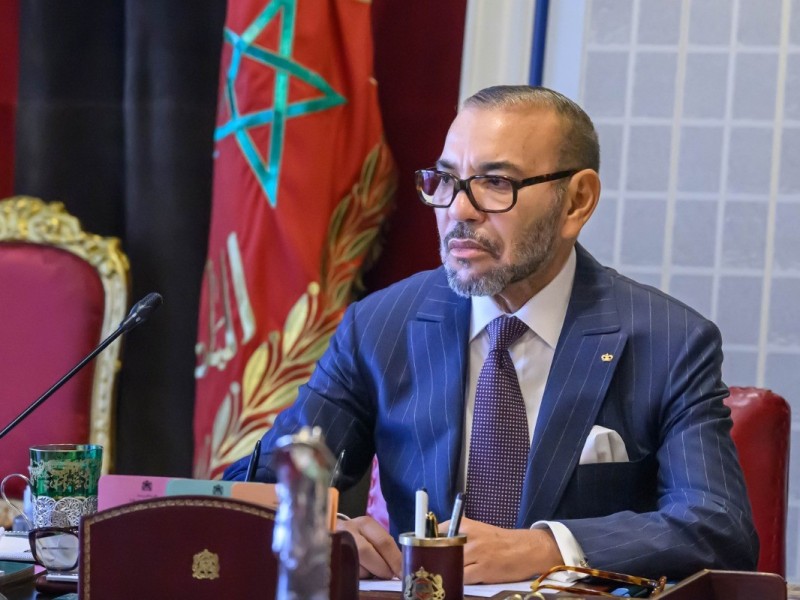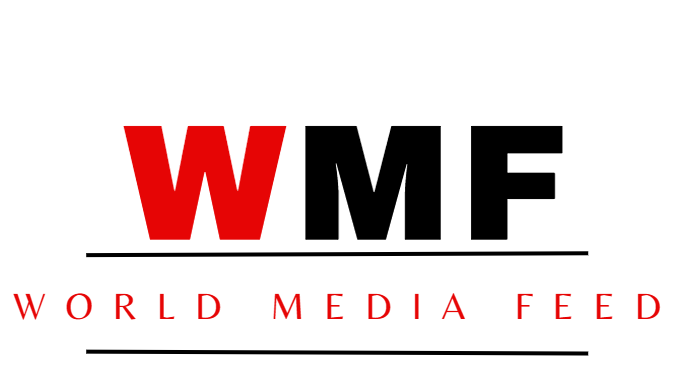
Rabat, October 19, 2023
His Majesty King Mohammed VI presided over a Council of Ministers meeting held at the Royal Palace in Rabat on Thursday, October 19, 2023. The primary agenda of the session involved discussing the general outlines of the 2024 Finance Bill, as well as the approval of a bill and draft decree related to the military sector. The meeting also addressed three international conventions and several high-level appointments. A press release issued by the Royal Palace spokesman, Abdelhak El Mrini, conveyed the details of the meeting.
The Council of Ministers meeting, chaired by His Majesty King Mohammed VI, commenced by examining the initial framework of the 2024 Finance Bill. The Finance Minister began the session by presenting the essential features of the bill, emphasizing that the development of this financial legislation comes against the backdrop of a global economic downturn, persistent geopolitical tensions, inflationary pressures, and energy price fluctuations. Additionally, the recent earthquake that impacted Morocco has further influenced the economic environment. The Moroccan government has acted promptly and efficiently in response to this natural disaster, implementing an extensive program across various sectors to rebuild and uplift the affected regions. This comprehensive program is estimated to require a budget of 120 billion dirhams over a period of five years to benefit nearly 4.2 million inhabitants residing in the affected regions.
The Finance Bill’s objectives include advancing previously initiated reforms and aligning with the priorities outlined in Royal Speeches and the government’s agenda. The primary focus areas of the 2024 Finance Bill are as follows:
- Reconstruction and Upgrading of Earthquake-Affected Regions: The bill aims to implement the “Program for the reconstruction and general upgrading of the regions affected by the Al Haouz earthquake” by swiftly leveraging an integrated approach and coordinated governance through the establishment of the High Atlas Development Agency. The initiative will involve contributions from the General State Budget, local authorities, the Special Solidarity Fund, and the Hassan II Fund for Economic and Social Development, along with international support.
- Social State Strengthening: The bill strives to consolidate the foundations of the Social State by continuing the implementation of the Royal social protection project. This includes expanding Compulsory Basic Health Insurance for underprivileged categories, launching direct social assistance, and ensuring that this initiative targets 60% of Moroccan families currently outside of social security schemes.
- Structural Reforms: Structural reforms will be a key focus, particularly regarding the justice system and the Family Code. Morocco will promote productive investment as an essential driver for its national economy, including the implementation of the Mohammed VI Fund for Investment and the new Investment Charter.
- Public Finances Sustainability: The bill aims to strengthen public finances, concentrating on tax reform, innovative financing, and improving the public portfolio’s yield.
The Finance Minister also detailed the assumptions underpinning the bill, projecting a growth rate of 3.7% in 2024 and a budget deficit of 4% of GDP.
Following the approval of the 2024 Finance Bill’s general guidelines, the Council of Ministers addressed a draft law and decree related to the military sector. The draft law focuses on granting the status of “Wards of the Nation” to children who suffered as a result of the “Al Haouz earthquake” that struck Morocco in September 2023. It will extend assistance to affected areas, including the province of Marrakech and the provinces of Chichaoua, Taroudant, Ouarzazate, and Azilal.
The draft decree, intended to improve the material circumstances and living conditions of children with the status of “Wards of the Nation,” amends the decree implementing the law on Wards of the Nation. It will allocate a lump-sum allowance to each individual with this status, regardless of the number of children in their family.
To fulfill Morocco’s international obligations, the Council of Ministers also approved three multilateral conventions, two of which are part of the Kingdom’s gradual accession to the legal mechanisms of the Council of Europe. These are the Civil Law Convention on Corruption and the Criminal Law Convention on Corruption. However, the government will present observations and objections regarding provisions conflicting with national legislation.
Moreover, the Council of Ministers made several high-level appointments following constitutional provisions and government proposals. Notable appointments include Mr. Mohamed El Guerrouj as the Director General of the National Agency for the Regulation of Cannabis Activities and Ms. Loubna Boutaleb as the Director of the Agency for the development of the Marchica lagoon site.
Additionally, Morocco appointed several Ambassadors to various countries, including the United Arab Emirates, the Hashemite Kingdom of Jordan, the Arab Republic of Egypt, the French Republic, the People’s Republic of China, and the United States of America. Furthermore, Mr. Abderrahim Chafai was designated as the President of the Supervisory Authority of Insurance and Social Welfare, based on the proposal of the Head of Government and the initiative of the Minister of Economy and Finance.





